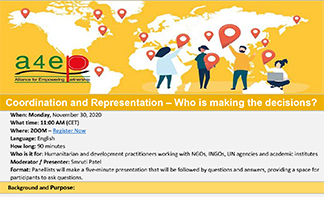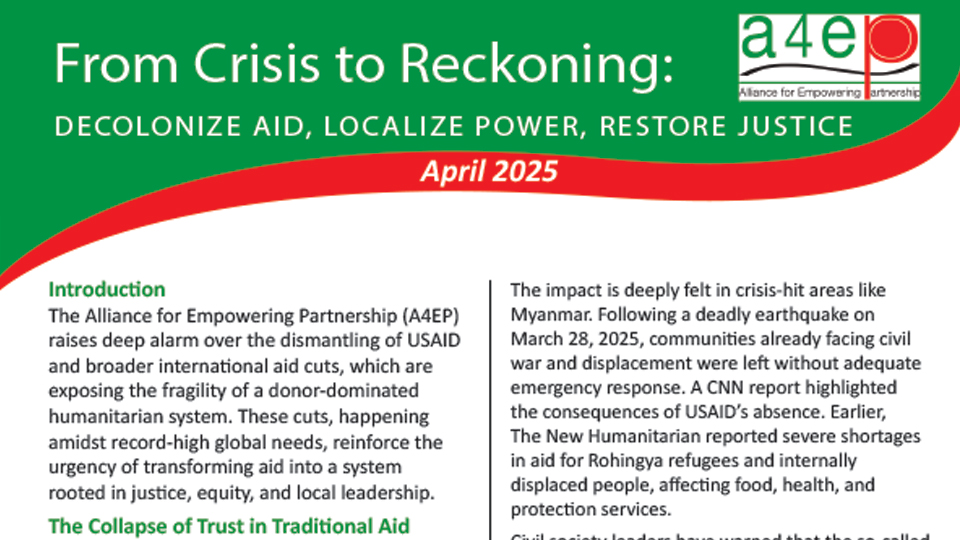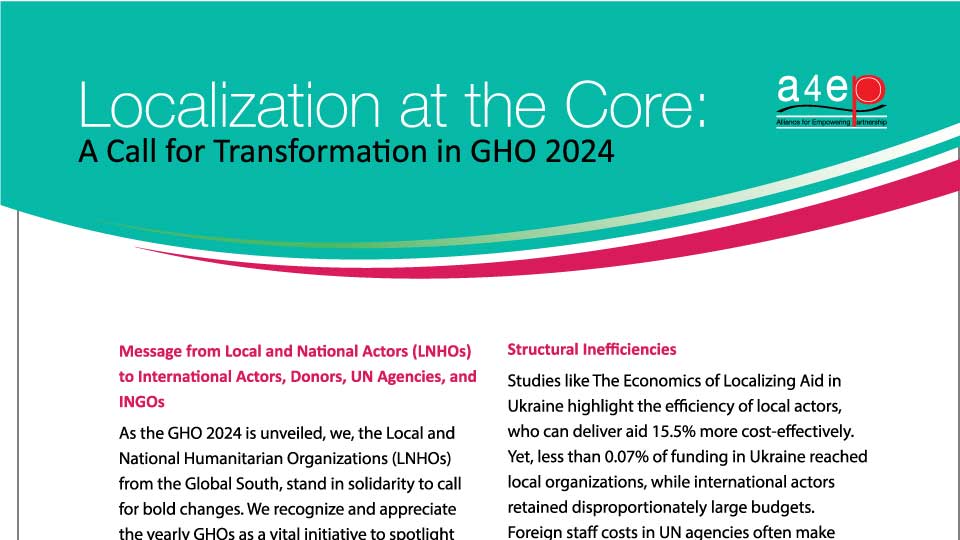The World Humanitarian Summit (WHS) in 2016 brought significant attention to Localization. The Grand Bargain confirmed a commitment from the largest humanitarian donors and aid organizations to make sure national and local partners are involved in decision-making processes in any humanitarian response, and deliver assistance in accordance with humanitarian principles. Because local actors often have the best understanding of the context and acceptance by the people in need of assistance and protection, they are essential for an effective humanitarian response. Grand Bargain states “Support and complement national coordination mechanisms where they exist and include local and national responders in international coordination mechanisms as appropriate and in keeping with humanitarian principles”.
What is the reality and experiences of local actors with the coordination mechanisms? In this dialogue, local and international actors will share their experiences and the way forward to ensure more effective and meaningful participation in coordination mechanisms.



